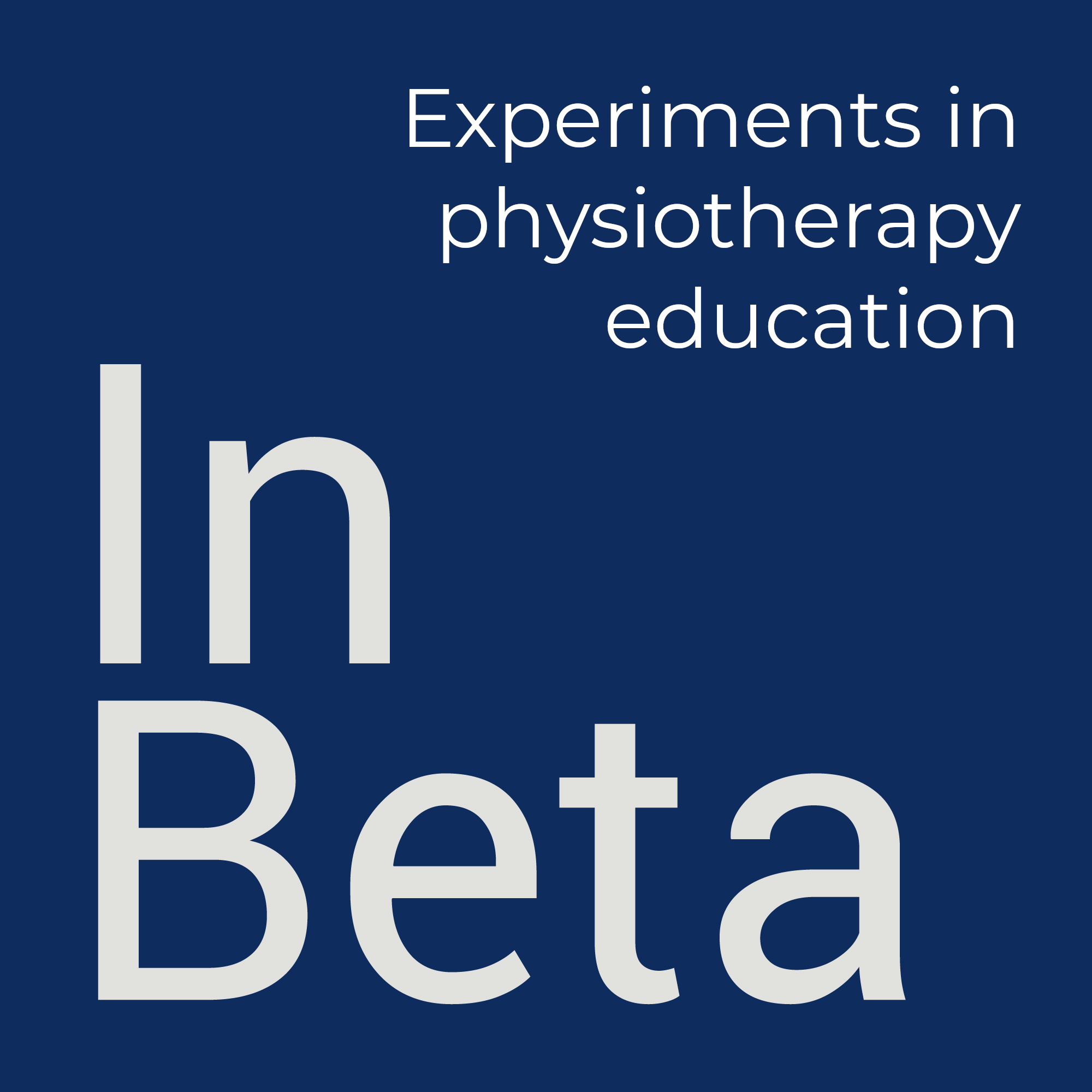Introduction
Physiotherapy education, like so many fields today, faces a relentless influx of new technologies. From digital patient records to AI-powered rehabilitation tools, innovations are constant. And it makes sense to advocate for the inclusion of these new services and platforms into physiotherapy education, as we prepare graduates for the world of work. But as any overwhelmed educator knows, adding another element to a packed curriculum isn’t necessarily the wise thing to do. Which is why we need to go beyond asking “Can this technology be used?” and start asking “Does this technology serve our students, our profession, and humanity as a whole?”
This month’s newsletter provides a series of resources that ask critical questions about technology’s ultimate impact, helping us examine how it can be evaluated not just for its features, but for its effects on human well-being. This is important for physiotherapy educators, as we shape the way future practitioners interact with both human patients and the technologies they’ll use to do so.
Podcast
Fernando, R. (2024, February 7). How to tell if a technology will serve humanity well. https://www.youtube.com/watch?v=P0ReCMIRr3w
This talk covers 8 key questions that put these principles into practice:
- Does the product help humanity in this pivotal moment?
- Where will prevailing systemic forces naturally take the product?
- Does the product have a clear definition of thriving, and does it help users thrive?
- What values does the product claim to centre, what does it actually optimize for?
- How do economic forces affect products, and how can product teams reduce harmful effects?
- Does the product respect or harmfully exploit human nature?
- Does the product enable shared understanding, information processing, and collaboration?
- Who is being left behind, and how can we do better?
Article
Van Noppen, A. (2021). Creating Technology Worthy of the Human Spirit. Journal of Social Computing, 2(4), 309–322. https://doi.org/10.23919/JSC.2021.0024
Spiritual caretakers have been present in every culture throughout human history. We know them as ministers, rabbis, llamas, shamans, imams, chaplains, gurus, and wise elders. In modern, secular times, they also include therapists, social workers, meditation teachers, and more. These caretakers support us through birth, death, and many of the most intimate and complex parts of the human experience. They use skills honed over many years that require paying radical attention to the humanity of others. Yet where is this expertise to be found in the creation of the digital technologies that have become portals through which we live, love, learn, grieve, and connect with our communities? Those who design and build digital technology must accept that we have become de-facto spiritual caretakers with the power to treat the well-being of humanity with care or with negligence. Unfortunately, caretaking is a role that computer science degrees do not prepare people for, few business models optimize for, and algorithms can not easily solve. This article outlines two concrete best practices that can help foster genuine responsibility and care on the part of technologists and technology companies. First, technologists must recognize that what we create is an expression of our own inner state. Our spiritual and emotional health is inextricably linked with our ability to build technology with responsibility and wisdom. Second, technologists must create an empowered seat at the table for those with the expertise and orientation needed to care for our souls, whether from a religious or secular lens.
See also this related blog post from Neil Selwyn.
Resource
Center for Humane Technology (n.d.). How can we build a world where we have healthy relationships with technology?. Retrieved from humanetech.com.
Social media has an increasingly dominant role in our relationships and daily reality—homework, weekend plans, flirting, friendship, our sense of self and belonging—all within a system that is designed to capture and monetize our attention. It’s creating disastrous consequences for our well-being, our relationships, democracy, and our ability to solve important problems. For school districts, educators, mental health advocates, young people, and other leaders alike, our Youth Toolkit helps high school and college students navigate — and push to change — a broken social media environment.
An interactive toolkit aimed at parents and educators, including a series of questions that can be worked through in a group or classroom setting. You can provide this as a standalone resource, although it’s probably best to integrate this into a curriculum.
New In Beta podcast episode
In Beta (2024). Generative AI in health professions education. In Beta podcast.
In this conversation, Ben and I speak to Lambert Schuwirth to get his take on the potential impact of artificial intelligence in health professions education. The conversation covers the development of HPE-Bot from a pedagogical perspective; the potential impact of generative AI on HPE teaching, learning, and assessment; concerns around hallucination; building entire curricula into language models; the research potential for understanding how this affects student learning behaviours; changes to institutional culture and digital literacy; the impact on professions; and the possible rise of private professional educational institutions that are supported by AI. All in all, this was a wonderful conversation, and I hope you enjoy it as much as we did.
Quote
Men have become the tools of their tools.
Henry David Thoreau (1854)
